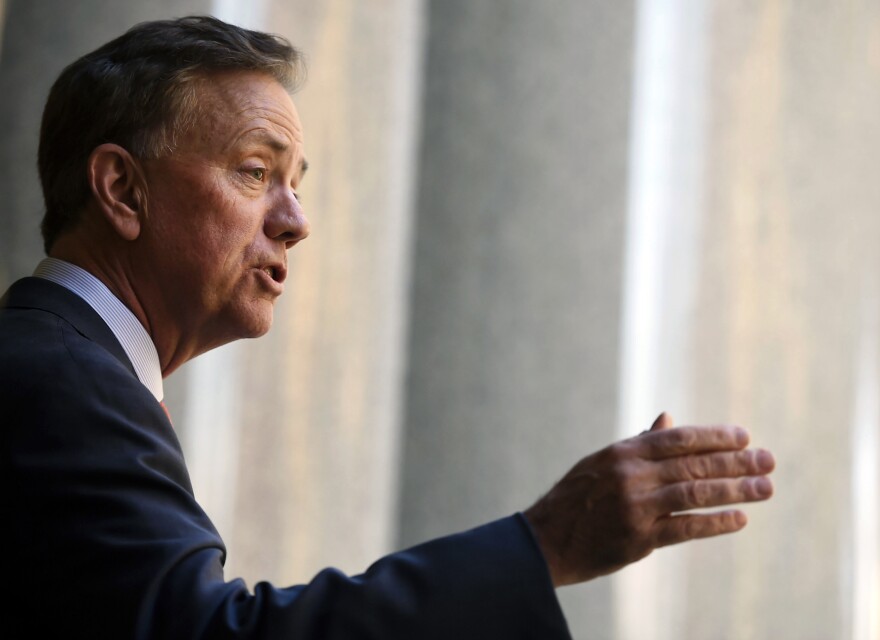Governor Ned Lamont said on Tuesday that Connecticut found success in state and local partnerships that were made during the pandemic. The state marked its two-year anniversary of the COVID-19 emergency last Thursday.
When Connecticut was confronted with its first few cases of the coronavirus, Lamont announced a state of public health and civil preparedness emergencies on March 10, 2020. These special executive powers gave him the authority to deploy emergency orders that would prevent the spread of the virus.
Two years later, with the decline of COVID-19 cases throughout the state and an agreement reached with the state General Assembly, Lamont’s emergency powers also expired Tuesday.
Lamont said many of the earliest emergency orders paved the way to rich partnerships with hospitals and the Connecticut National Guard for COVID-19 testing, treatment and vaccination.
“We got more of our people vaccinated faster and I think we saved hundreds and hundreds of lives the way we did,” Lamont said. “We got a way to go, and I know how exhausted the people of Connecticut are, but take this as a good day.”
The remainder of Lamont’s pandemic-related emergency orders will expire on April 15.
Emergency executive orders
- March 13, 2020: Executive Order 7A, which restricted visitors from entering into nursing home facilities, residential care homes and chronic disease hospitals to protect the health and welfare of patients, residents and staff
- March 16, 2020: Executive Order 7D, which reduced large crowds and enforced social distancing in public settings such as restaurants, bars, private club operations, gyms, and movie theaters.
- February 4, 2021: the Lamont administration distributed over $40 million to hospitals across Connecticut to support frontline workers throughout the duration of the pandemic.
- December 28, 2021: Lamont called on nearly 100 members of the Connecticut National Guard to distribute at-home test’s and masks to the public.
- January 11, 2022: Executive Order 14E, which reemploys retired teachers to help address teacher shortage.
- January 19, 2022: Executive Order 14F, which requires issuing proof of vaccination boosters or testing for nursing home visitors.


